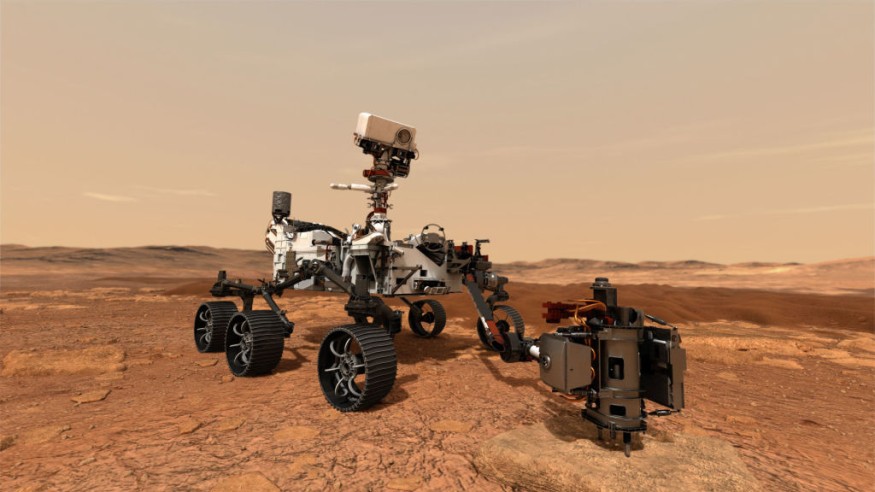On Saturday, February 18, NASA's Perseverance rover marked its second anniversary on Mars's surface. Since its arrival at Jezero Crater in 2021, the six-wheeled, nuclear-powered rover has been exploring geologic features and collecting samples of the Red Planet as part of the first stage in the NASA-ESA (European Space Agency) Mars Sample Return program.
Scientists want to analyze Martian samples in sophisticated labs on Earth in order to look for traces of ancient microbial life and better understand the processes that have sculpted Mars' surface.

Time of Reflection and Celebration
Ken Farley, a scientist at Caltech in Pasadena working on the Perseverance rover, said that anniversaries are a time for contemplation and celebration. As per SciTech Daily, Perseverance has investigated and collected data on hundreds of Martian geological features. It also gathered 15 rock cores and built the first sample depot on another planet.
Scientists are hopeful that the mission's second phase which they call Upper Fan would yield more results soon. Farley added that the rover has gathered two regolith samples and one atmosphere sample to date, as well as sealed three witness tubes, collecting a total of 18 samples so far.
Statistics are important in the life of a Mars rover mission, not only because the crew contains a large number of scientists and engineers, but also because statistics give the greatest and most efficient view of vehicle trends and performance.
For example, numbers can tell not only how far the rover has traveled (9.3 miles/14.97 kilometers) but also how many spins its left front wheel has made as of February 14.
Scientists have recorded the number of times the Mars Oxygen In-Situ Resource Utilization Experiment (MOXIE) technology demonstration produced 3.25 ounces (92.11 grams) of oxygen. The Gas Dust Removal Tool (gDRT) puffed 62 times to clear residual dust and particles from rock-abrasive activities.
Steve Lee, Perseverance deputy project manager at NASA's Jet Propulsion Laboratory in Southern California, emphasized the importance of numbers or statistics in the mission. He said that they collect, assess, and compare these numbers more often than they want to admit, even to the point of boring their loved ones as they continue to talk about numbers over dinner.
NASA listed the most recent statistics on Perseverance's first two Earth years of Jezero surface activities. Some will appear subtle while others will appear more urgent; but they all highlight how fruitful the mission has been.
Percy's Plan For Its Third Year on Mars
Perseverance rover, nicknamed Percy, was made to collect rock samples on Mars. The rover has been drilling out rock cores and scooping up Mars regolith to bring to Earth as early as 2030. Thus far, Perseverance has filled 18 of its 38 titanium sample tubes.
According to the basic Mars Sample Return architecture, ESA will launch an Earth Return Orbiter (ERO) in 2027, followed by NASA sending a rocket-equipped Sample Retrieval Lander (SRL) to Mars the following year.
If all goes as planned, Space.com reports that the Perseverance rover will transport its sample load to the SRL, which will land inside the 28-mile-wide (45-kilometer) Jezero crater. The Mars material will then be sent into orbit by the SRL's onboard rocket, where the ERO will capture and drag it toward Earth.
However, there is no assurance that Perseverance will still be alive in the late 2020s, which is where the depot comes in. As a backup, the rover recently dropped 10 sample tubes at a portion of Jezero known as Three Forks the mission team. If necessary, two Ingenuity-like helicopters that will launch from the SRL will collect the depot tubes one by one and return them to the lander for launch.
RELATED ARTICLE: NASA's New Facility To House Mars Rock Samples From Perseverance Rover's Collection
Check out more news and information on Perseverance Rover in Science Times.












